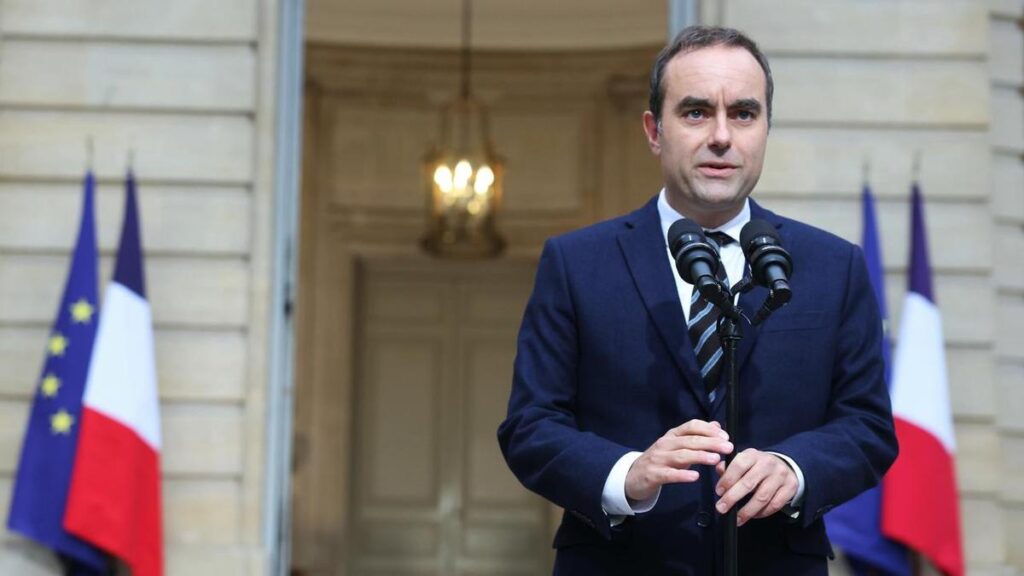
UPDATE: French Prime Minister Sebastien Lecornu has just announced a major cabinet reshuffle, appointing Roland Lescure as finance minister in a move that could significantly impact the stability of his government. This comes amid mounting pressure from political rivals who are poised to challenge his administration if it fails to break from the policies of former President Emmanuel Macron.
In a crucial political moment, Lecornu, who is just 39 years old, faces immediate backlash from leftist factions. Jordan Bardella, president of the nationalist National Rally party, declared on X that the new government reflects a continuation of Macron’s policies, stating, “It’s either a break with the past or a vote of no confidence.” Left-wing politicians have already signaled their intent to file a no-confidence motion against the new cabinet.
The reshuffle, confirmed earlier today, is especially critical as budget negotiations loom on the horizon. With France’s fiscal deficit currently the largest in the euro zone, Lecornu must navigate a minefield of ideological divisions among three key blocs: Macron’s centrist minority, the far right, and the left. Failure to secure cooperation could lead to the downfall of his minority government.
Lescure, a long-time ally of Macron, was previously a member of the Socialist Party and has been tasked with steering France’s budget through turbulent waters. His appointment, while seen as an attempt to appease left-wing factions, has not been well-received. Politicians from the hard-left France Unbowed party wasted no time in criticizing the cabinet, reiterating calls for significant policy shifts away from Macron’s legacy.
Lecornu’s first major test will come on Tuesday when he delivers a speech detailing his government’s policy agenda. This speech is eagerly anticipated, as both public opinion and investor confidence are at stake. His predecessors, Francois Bayrou and Michel Barnier, were ousted due to failed attempts to manage France’s public spending effectively.
In a surprising twist, former finance minister Bruno Le Maire has been reassigned as defence minister, where he will play a pivotal role in shaping France’s response to European security issues amidst growing demands from US President Donald Trump for the EU to bolster support for Ukraine.
As the political landscape shifts, Lecornu’s ability to unify a fractured government will be put to the test. Key ministers remain in their positions, including Jean-Noel Barrot at the foreign ministry and Gérald Darmanin at justice, but the real question lies in whether this new lineup can deliver the change the French people are calling for.
This situation is developing rapidly, and observers are keenly watching how Lecornu will respond to the pressures from both sides of the political spectrum. Will he manage to chart a course that satisfies the demands for change, or will he face the consequences of a no-confidence vote? The coming days will be crucial for the future of his administration.







